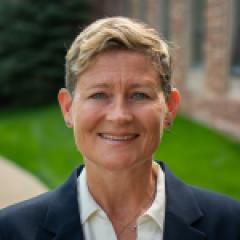Psychology Today: Improving School Climate
In my last blog post, I talked about the recent rise in harassment and hate incidents since the election on November 7 that has been documented in several spaces, most comprehensively by the Southern Poverty Law Center. I offered resources and advice to help educators and parents continue to create safe and affirming school climates as students feel bolder about expressing racist, sexist, islamophobic, and xenophobic beliefs.
We know that school climate matters for student persistence, belonging, and safety, but under No Child Left Behind (NCLB) there was no accountability for schools to build and evaluate their success at creating safe and equitable school climates. Under the new federal legislation that replaces NCLB, the Every Student Succeeds Act or ESSA, we have a new opportunity to elevate and emphasize the importance of measuring and improving school climate.
For example, Denver Public Schools recently implemented a new measure called the “equity indicator” as part of their new school rating system. It sounds promising; unfortunately, this indicator is still based mostly on student performance on standardized tests and doesn’t take into account other factors that impact equitable educational opportunities such as:
- access to a rigorous college-prep curriculum
- teachers who are supported in ongoing professional development
- rates of bullying and harassment
- resources and supports available for students
In a policy brief released by the National Education Policy Center November 15, I along with my co-authors, argue for using a new element of ESSA to help schools prioritize evaluating and improving school climate by using the new “non-academic indicators” portion of the law. The brief is designed to help states select, design, and implement new evaluation systems that will help them systematically measure and track progress towards increasing educational opportunities and improving school climate.
With the make-up of the Department of Education in question under a new President-elect Trump, it is important for educational leaders and state departments of education to set plans in motion that will improve the learning and working experiences of students and teachers in our public schools. We have learned from NCLB that what is measured gets prioritized and we can use this as a chance to shine a light on the importance and impact of improving opportunities to learn and school climate.

Source: Keith Evans/Wikimedia Creative Commons
In addition to the policy and research recommendations provided in the brief, educators and parents can do several things to keep their local schools and districts moving towards more equitable and safe school environments:
- Promote restorative justice programs over traditional punishment-based forms of discipline.
- Advocate for Social-Emotional Learning (SEL) curriculum to be regularly taught from k-8. Programs like Second Step and Caring School Community have been researched and show a positive impact on school climate.
- Create/support local professional learning communities (PLCs) centered on teachers’ questions and needs with a goal to improve equity and school climate.
- Review school policies on bullying and harassment to see if they are clear and comprehensive and that professional development is provided for staff to know their responsibilities for reporting and intervention. See my previous blog post for more information on bullying policies.
- Build community among parents, educators, and community groups to share resources and work with schools to proactively address these issues. Attend meetings, ask questions, read documents, and work together to advocate for particular issues in your school or district.
Public schools are designed to serve the interests of all children and families in our country. In order for democracy to work, we all need to be invested in the success of our schools. I hope these suggestions and resources help you be a better advocate for the students in your local schools.
This blog post has been shared by permission from the author.
Readers wishing to comment on the content are encouraged to do so via the link to the original post.
Find the original post here:
The views expressed by the blogger are not necessarily those of NEPC.
